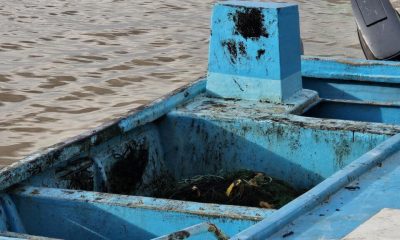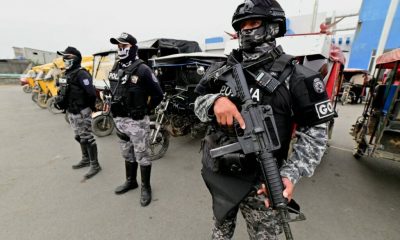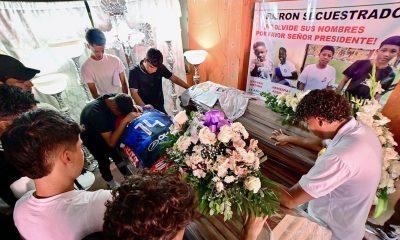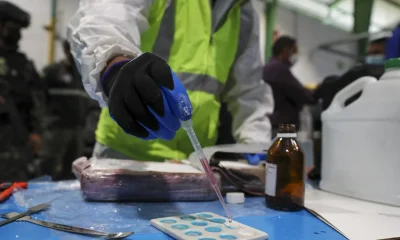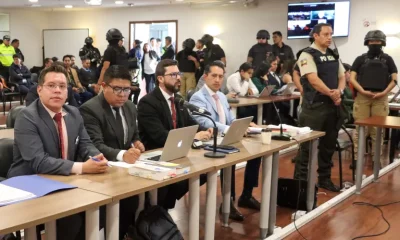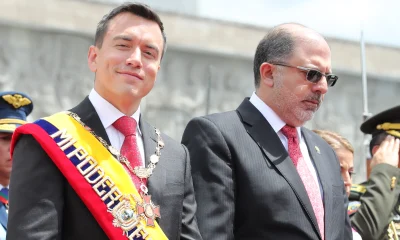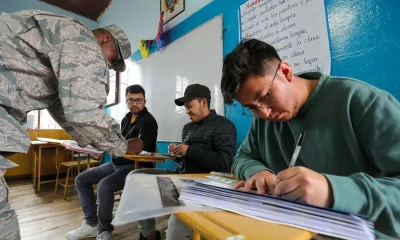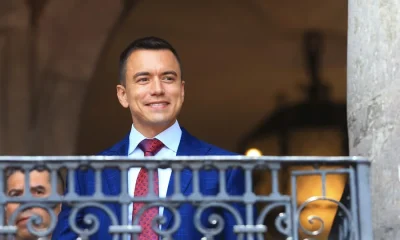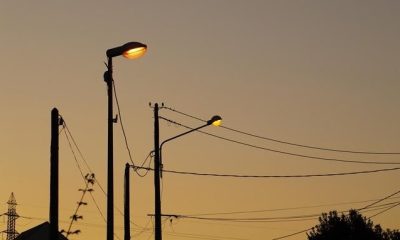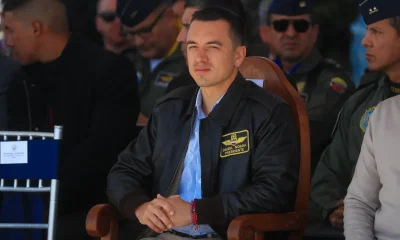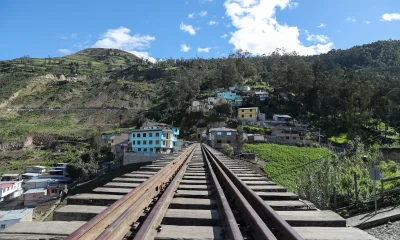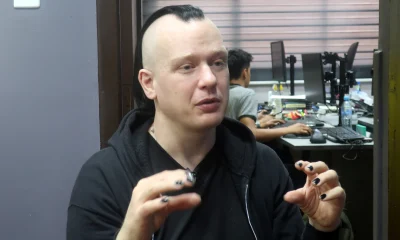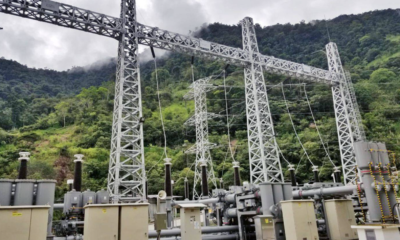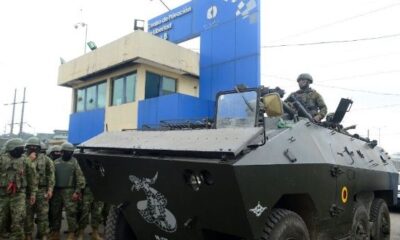International
H: the heroin derivative ravaging Ecuador’s poor
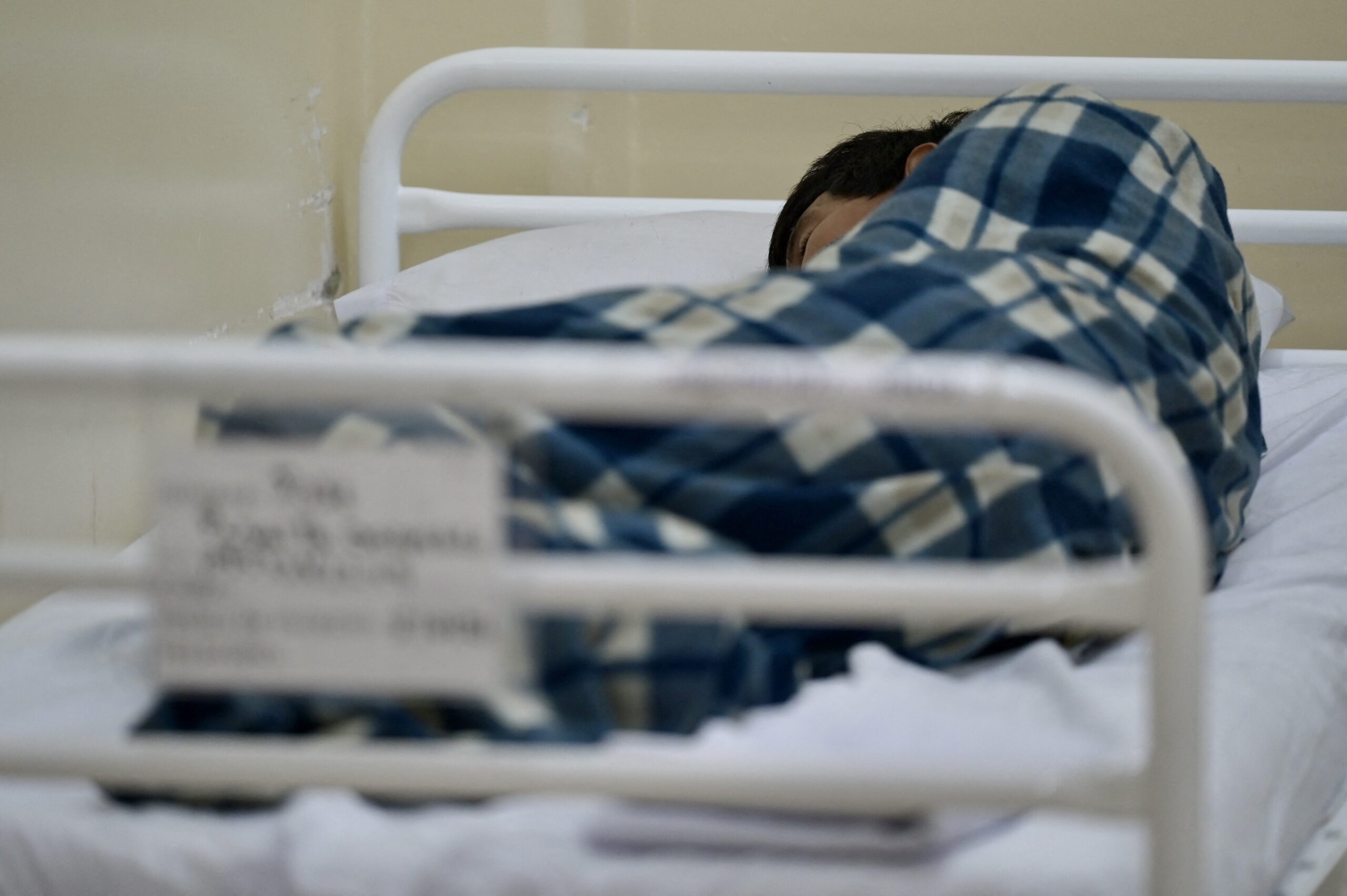
January 20 | By AFP | Karla Pesantes |
Shaking and delirious, Rina ambles half-dressed beside a dump in Ecuador’s port city of Guayaquil.
She is under the psychotropic effects of “H,” a cheap and addictive drug that is ravaging the poorest sectors of Ecuadoran society.
The scene was captured on video on New Year’s Eve and relayed to the municipal health center, which came to her aid.
“When I consume (the drug) I hear voices,” the 24-year-old, who is using a pseudonym, told AFP.
For the second time in less than a year she is following a drug rehabilitation program.
In her desperation, Rina stole and even worked as a prostitute to buy H, a heroin-based white powder that can be snorted or smoked and is sold for $1 a gram.
It is much cheaper and much more toxic than cocaine, which goes for $3 to $5.
H is cut with all sorts of toxic materials that can harm humans.
“We have found lime, cement, ether, rat poison and even ketamine, an analgesic used on horses,” in the white powder, said psychiatrist Julieta Sagnay, from the Guayaquil-based Neuroscience Institute, an NGO that supports drug addicts.
Guayaquil, a city of almost three million people, has become a hub of drug trafficking and addiction.
Officials say 162 kilograms of H were seized in 2022.
Sagnay, an expert with more than 30 years of experience treating addicts, says the number of patients she treats for H use is increasing every day.
And their physical condition deteriorates quicker than other patients.
In just six months, H addicts are constantly moving their legs, scratching, and not sleeping or eating.
Withdrawal symptoms are so severe, says Sagnay, that it is unbearable without at least eight days of pharmaceutical treatment.
‘They beat me’
There are three public clinics in Guayaquil for addicts and there are more than 30 private ones but they can cost up to $700 a month in a country where the minimum wage is just $450.
Some addicts turn to back-alley detox centers.
“They beat me, they poured a bucket of cold water on me and we ate chicken heads every day,” said Hugo Mora, who was treated four years ago in a dirty, dark, illegal center with no windows.
It only cost $150 but it was a failure.
After trying out two such clinics, the 24-year-old street vendor spent a week in a municipal hospital, where he was treated in a large room with more than a dozen beds.
The hospital takes in up to 150 daily patients, 90 percent of whom are suffering from an H addiction.
The InSight Crime think tank says H arrived in Guayaquil in 2011, pushed by Colombian cartels hoping to develop the heroin market.
But the H powder contains less than three percent heroin, according to forensic psychologist and retired police officer Segundo Romero.
“As there is so little pure drug, the addict needs to consume more and buy more,” said the forensic psychologist.
He told a story about meeting addicts in prison whose faces were covered in dust.
“As they no longer had any drugs, they had scratched the walls and put white paint in their nostrils,” he said.
With just one gram of heroin, a dealer can make 40 grams of H, with the mix of ingredients provoking psychotic symptoms and hallucinations.
In Cerro las Cabras, the drug supermarket in Duran, a town opposite Guayaquil along the Guayas river, H sales bring in $1 million a month, according to official estimates.
International
Claudia Sheinbaum: Operation Against ‘El Mencho’ Was Based on Pending Arrest Warrants

Mexico’s President Claudia Sheinbaum on Wednesday rejected claims that the military operation that resulted in the death of Nemesio Oseguera Cervantes, known as “El Mencho,” leader of the Jalisco New Generation Cartel (CJNG), was carried out under pressure from the United States government.
Sheinbaum explained that the deployment of federal forces was aimed at executing outstanding arrest warrants against Oseguera Cervantes, who was considered one of the most wanted criminals in both Mexico and the United States.
“That was not the objective (to ease pressure from the United States). It is very important, and I want to repeat it. This individual had an arrest warrant, or several,” Sheinbaum said, referring to the operation conducted on February 22.
According to the president, the initial goal was to capture Oseguera Cervantes, but military forces responded after coming under attack during the intervention.
“The operation was to detain him. The problem is that they were attacked — the Secretariat of National Defense — and they responded at that moment,” she said.
The president insisted that the action was not carried out in response to external demands, although she acknowledged intelligence cooperation with the United States.
“It was not done in any way because of pressure from the United States, not at all. Of course, there was intelligence information from the United States that was used specifically,” she concluded.
International
Spain Denies Any Agreement to Cooperate with U.S. Military in Iran Operations
International
White House Says Spain Agrees to Cooperate with U.S. Military After Trump Threatens Trade Embargo

White House Press Secretary Karoline Leavitt said Wednesday that Spain has agreed “in recent hours” to cooperate with the U.S. military, following President Donald Trump’s threat to impose a trade embargo on Madrid.
Trump had warned of potential commercial measures after Spain reportedly refused to allow the Pentagon to use facilities at Spanish military bases for operations related to Iran.
“With respect to Spain, I think you heard the president’s message yesterday loud and clear, and I understand that in recent hours they have agreed to cooperate with the United States military,” Leavitt said during a press briefing.
She added that the U.S. military is currently coordinating with its counterparts in Spain. However, the president expects broader support.
“The president expects that all of Europe, all of our European allies, of course, will cooperate in this important mission — not only for the United States, but also for Europe,” Leavitt said.
Her remarks came in response to questions about Spain’s position and its role as a U.S. ally amid rising tensions surrounding operations involving Iran.
-

 International4 days ago
International4 days agoIran Reports 201 Dead, 747 Injured After U.S. and Israeli Strikes
-

 International3 days ago
International3 days agoBrazil’s Supreme Court Rejects Bolsonaro’s Bid for House Arrest
-

 International3 days ago
International3 days agoAnti-ICE Billboard Campaign Targets Immigration Spending in 31 U.S. Cities
-

 International2 days ago
International2 days agoSpain’s Prime Minister to Address Nation Amid Trump’s Trade Threats
-

 International4 days ago
International4 days agoPope Leo XIV Urges End to ‘Spiral of Violence’ in Middle East
-

 International1 day ago
International1 day agoWhite House Says Spain Agrees to Cooperate with U.S. Military After Trump Threatens Trade Embargo
-

 International3 days ago
International3 days agoTrump Warns of ‘Major Wave’ of Attacks as Iran Conflict Escalates
-

 International3 days ago
International3 days agoMexico Calls for Immediate Probe After National Dies in ICE Custody
-

 International2 days ago
International2 days agoNew York Announces First 2,000 Seats in Universal 2-K Program
-

 International1 day ago
International1 day agoSpain Denies Any Agreement to Cooperate with U.S. Military in Iran Operations
-

 Central America2 days ago
Central America2 days agoGuatemala’s Attorney General Fails in Bid for Top Court Seat Amid Corruption Allegations
-

 Central America1 day ago
Central America1 day agoNicaragua Held Responsible for Harassment of Opposition Prosecutor and His Family
-

 Central America3 days ago
Central America3 days agoPanama Canal Monitoring Trade as Middle East Conflict Disrupts Shipping
-

 International3 days ago
International3 days agoBolivia Orders Three Investigations Into Deadly Military Plane Crash
-

 International2 days ago
International2 days agoWarner Bros. Developing First ‘Game of Thrones’ Movie With ‘Andor’ Writer
-

 International1 day ago
International1 day agoClaudia Sheinbaum: Operation Against ‘El Mencho’ Was Based on Pending Arrest Warrants



























